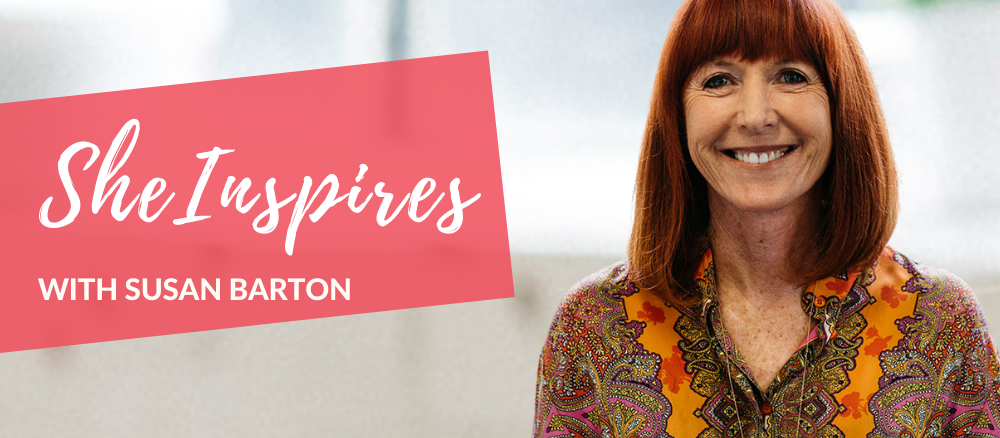
SheSociety had the privilege to ask Susan Barton, Founder and Director of Lighthouse Foundation, a few questions about her life and work for homeless youths and children.
Tell us a little bit about yourself – who you are and what you do – I am the Founder and Director of Lighthouse Foundation for homeless youths and children. For 30 years, Lighthouse Foundation has cared for, nurtured and supported over 1,000 vulnerable children, helping them to move out of the cycle of homelessness. I have six of my own children and twelve grandchildren.
Which person inspires you the most? The young people of Lighthouse show the most amazing courage which always inspires me. I’m forever amazed by young people who overcome traumatic early experiences and become members of the community and loving parents to their own children. It is such a privilege to witness them thrive and give back in their communities as psychologists, educators, social workers and youth workers.
What has been a life changing moment for you? Volunteering in an orphanage in Sri Lanka in my twenties, completely changed my life. I witnessed extreme poverty and severe malnutrition of babies and children and I returned to Australia knowing I had to do something to help children in need. I began fostering adolescents without a family, but there were so many children who needed to be cared for that I quickly realised I had to find and teach other carers. I could see that these deeply wounded children needed to have a strong connection with someone so they could feel safe and valued.
Tell us about Lighthouse Foundation – Lighthouse currently has 12 suburban homes run by long-term live-in carers, that operate on our Model of Therapeutic Care. We have programs for adolescents at risk of homelessness, who may have stopped attending school and have become isolated from others. We provide a safe home where youths are well cared for and are able to recover from the trauma of their early lives. We run programs for young homeless mums and their newborn babies, and a home for girls who have escaped an early or forced marriage. These girls are usually brought to us by the Australian Federal Police who have assisted in their rescue.
We also care for young children and sibling groups through our new Foster Care program which provides significant additional support for foster families. Finally, we help young people transition into independent living.
Why is the Lighthouse Model of Care so important and successful in helping traumatised young people learn how to form healthy, trusting relationships? Our Model of Care is based on the principle that children thrive when they’re allowed to make healthy attachments to people who demonstrate (with a hands-on approach) that they really care. Our approach helps build a community of people around children, in the same way that children in stable, loving homes would have.
What has motivated you to protect vulnerable and neglected young people? The deep and unconditional love I have for my own children is what motivates me. I can’t bear the thought that any children go unloved and uncared for. It is critical that every child should feel wanted, loved and held in mind by a loving adult. Children should be embraced by a community that provides a network of support and mentorship to enable them to grow in independence and eventually transition successfully into adulthood.
What has been the biggest lesson you have learnt (in life or business)? I’ve learnt to call on those who are smarter and more capable than me and to use their skills to develop best practice in our Model of Care. I’ve learnt to turn the old welfare models on their heads so that young people can be cared for through loving relationships and a community that embraces them.
What is the best piece of advice you have ever been given and by whom? Tony Keenan of Clean Up Australia once told me that it is us, the community, that is responsible for the most vulnerable. He used this idea to create Clean Up Australia/The World. I use this principle to encourage my community to help heal the lives of our young people.
What is your quote to live by? I have two. The first one is a quote by Brene Brown on relationships. Brene defines connection as “the energy that exists between people when they feel seen, heard, and valued: when they can give and receive without judgment: and when they derive sustenance and strength from the relationship.” My second favourite quote has gotten me through some tough times. Winston Churchill once said “Never give in, never give in, never, never, never, never – in nothing, great or small, large or petty – never give in except to convictions of honour and good sense.”
SheSociety is a site for the women of Australia to share our stories, our experiences, shared learnings and opportunities to connect.

Leave a Reply